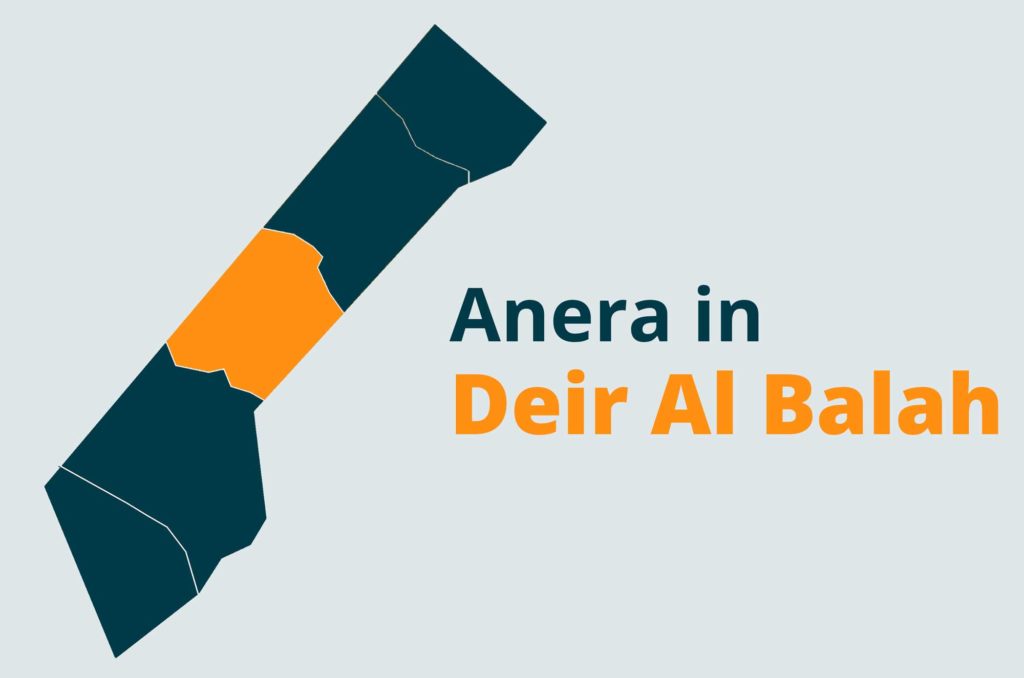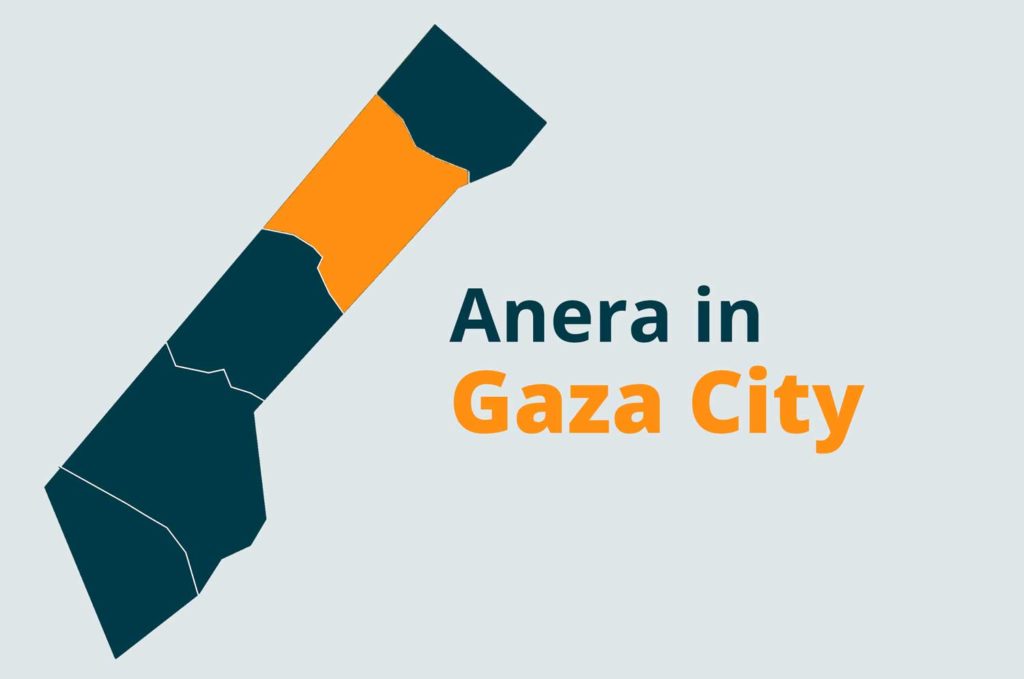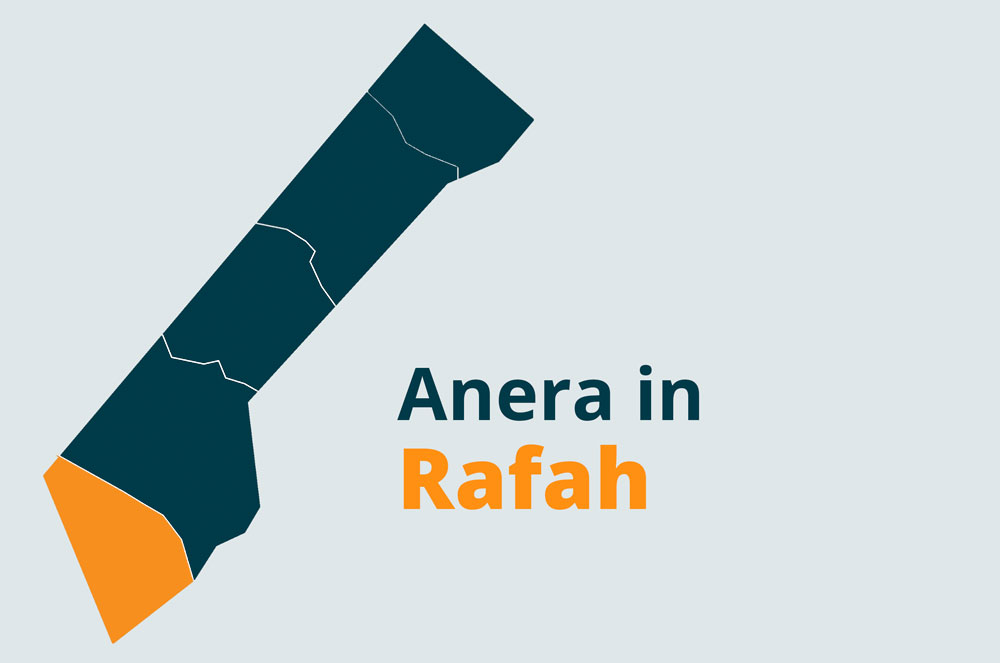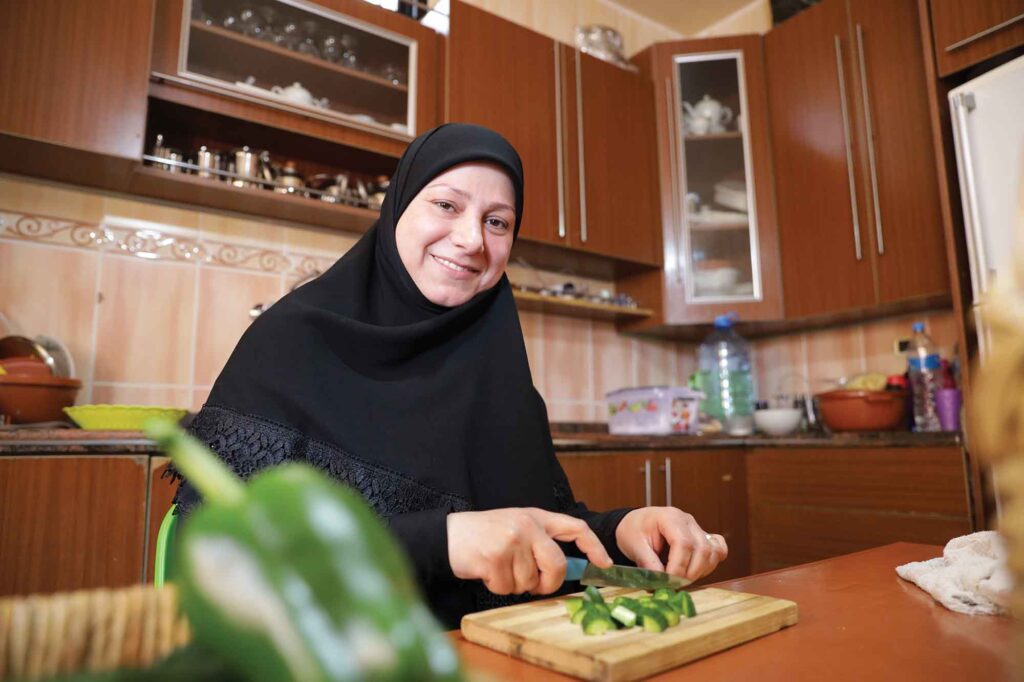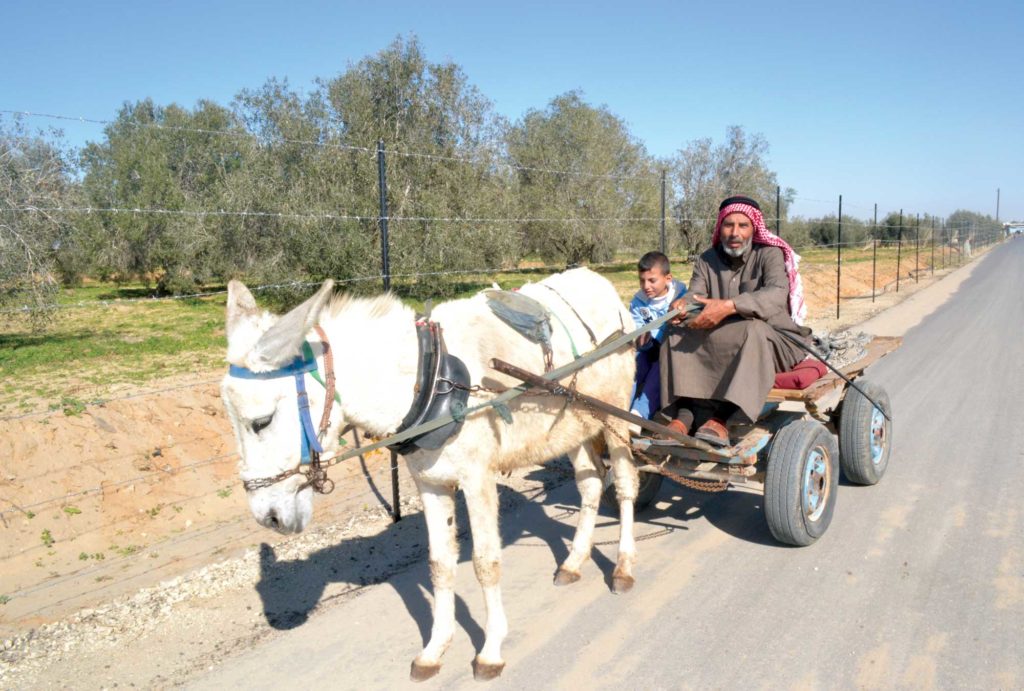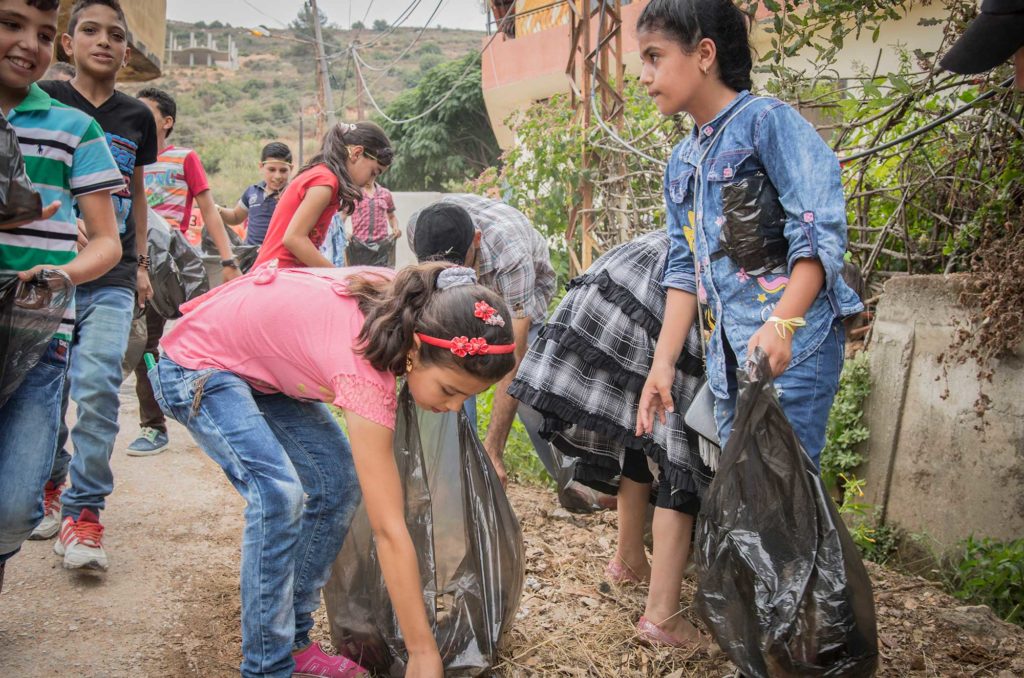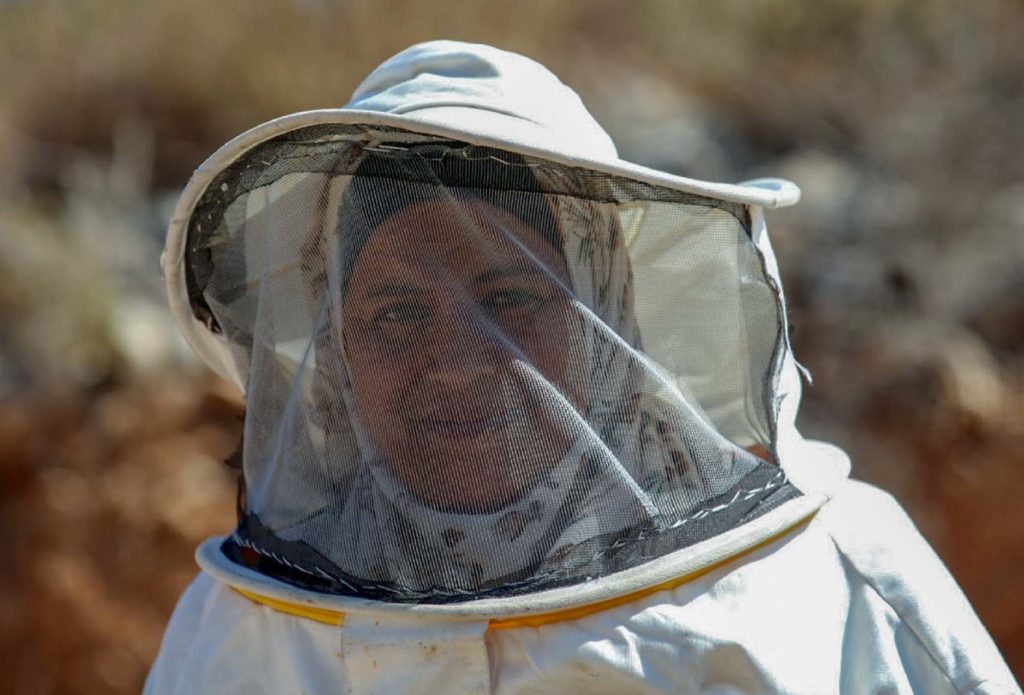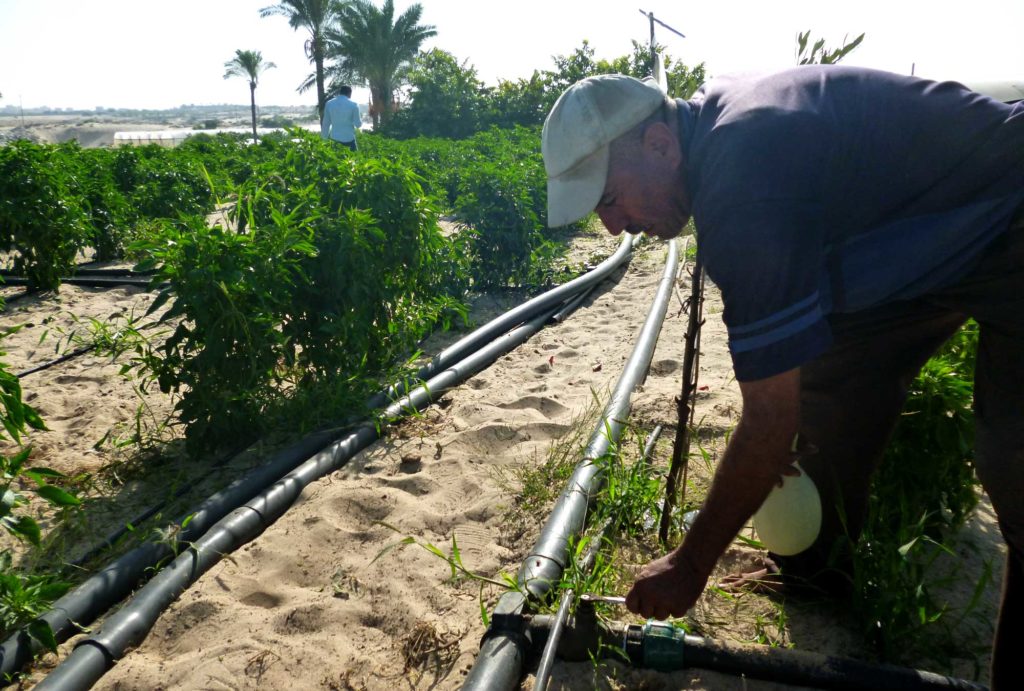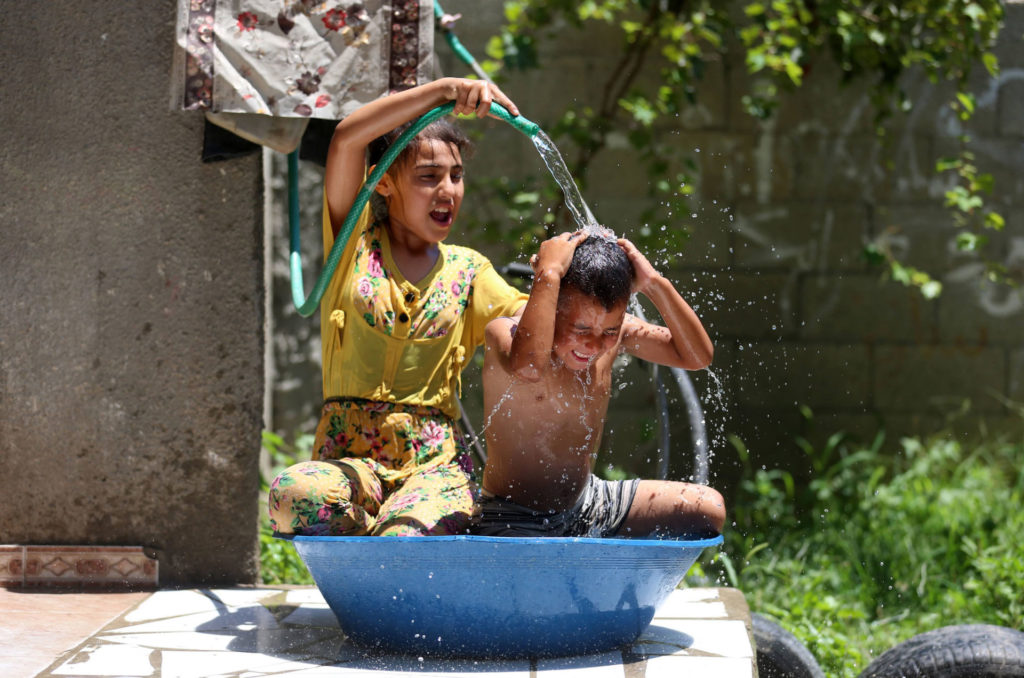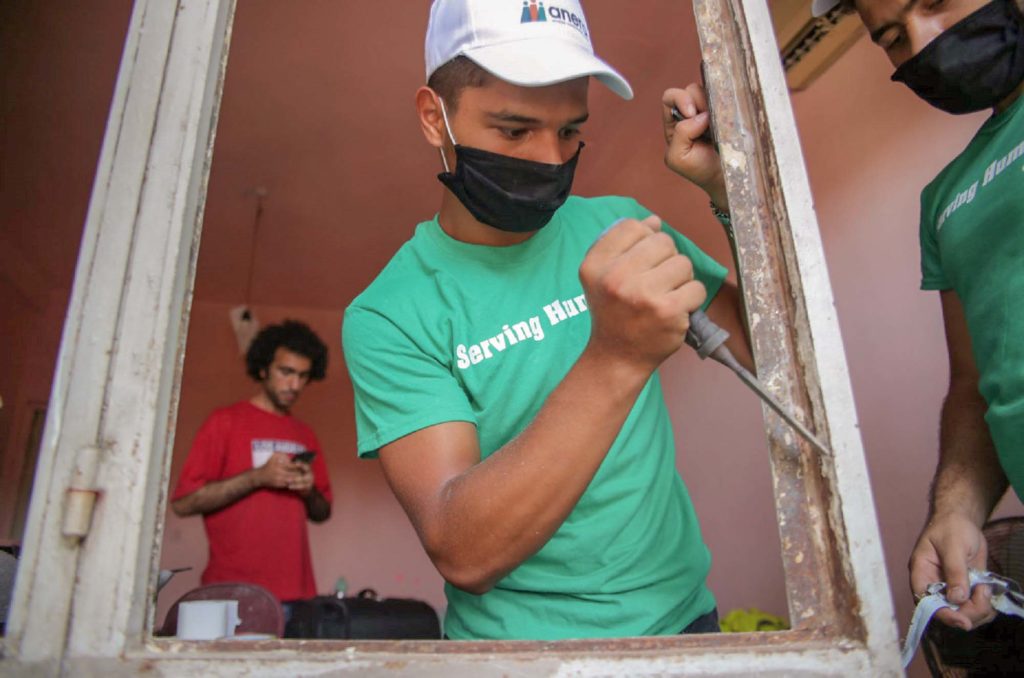Food insecurity and unemployment are major challenges in the three countries where Anera works.
Since the blockade started in 2006, the economy of Gaza has been stagnating. Add to this intermittent bombing campaigns and a global pandemic and you have a recipe for food insecurity. Eight out of ten Gaza families depend on food aid.
In the West Bank, Israeli settlement expansions, checkpoints, and the separation wall, have been eroding the economy and shrinking employment opportunities for many years.
Lebanon faces immense challenges due to the meltdown of the financial system, the Beirut explosion and the pandemic. The resulting unemployment and financial instability have increased the prevalence of extreme food insecurity among families.
In Jordan, the number of people going hungry has also increased due to the economic challenges the pandemic created.
Farming, even on a very small level, is one way families across Palestine, Lebanon and Jordan can put food on the table and generate income.
Making Land and Rooftops Productive
Anera has more than 40 years of experience in agriculture, helping families make wise use of limited resources to grow the food they and their communities need.
Anera has worked with Palestinian farmers and farming families to establish agricultural cooperatives, build farming terraces, install cisterns and smart irrigation systems, build farm-to-market roads and wholesale produce markets, and plant profitable crops. We also have built or repaired thousands of greenhouses across Palestine.
Our experienced agronomists have, over the years, refined their practices to make better use of water and space – an important consideration in places where both are at a premium. Anera provides families with a system of modified hydroponics called “wicking beds,” which water plants from below rather than above. The beds are in containers that have water reservoirs at their base. They are designed to provide plants with the optimum amount of water needed, without the need to irrigate daily. It's particularly good for arid climates, like the Middle East.
We are now replicating our wicking bed practices in all of the countries where Anera works.
Rooftop Gardens
In Palestine, Lebanon and Jordan, Anera is building rooftop gardens in camps and urban areas. We're helping families who have space they are otherwise not using to grow prolific crops of vegetables, fruits and herbs. Our gardens are atop roofs, and sometimes on the ground. They are enclosed in small greenhouses, which we fill with barrel wicking beds and planted with seedlings that will thrive. Anera agronomists provide extensive training on best practices for tending gardens to keep them fertile after Anera's intervention.
Agricultural Training in Lebanon
Anera has established an accelerated vocational agriculture course to encourage young people in Lebanon to work in the farming sector. The course covers the dos and don’ts of preparing the soil, growing seedlings and building greenhouses. Youth also learn how to divide their growing space and plan for their harvest. Once the crops have been picked, they package the harvest for vulnerable families signed up to receive Anera’s produce baskets.
Installing Greenhouse Gardens: How It Works
-
Select
Identify the neediest, most food insecure families with the best chance to succeed in farming — with women-headed households getting priority.
-
Evaluate and Design
Evaluate all rooftop and yard spaces, making adjustments to garden designs and systems accordingly.
-
Build, Equip & Plant
Build greenhouses tailored to the space and, with the help of the family, prepare the wicking beds and plant seedlings.
-
Train
Provides training on the technical aspects of garden operation and maintenance as well as best practices for optimal productivity and profit.
Anera launched our urban rooftop gardens first in Gaza, Palestine. Because of our success, Anera chose to transfer this experiment to the Nahr El Bared camp in northern Lebanon.

